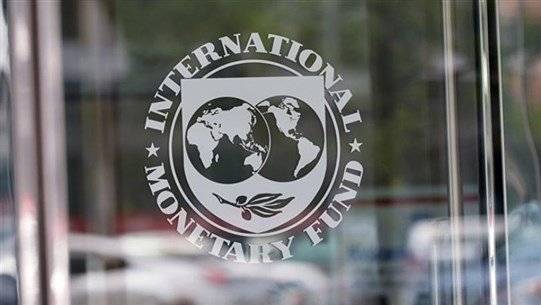Concerns are rising among international institutions, as well as within local economic and banking circles, regarding the Lebanese authorities' continued disregard for warnings about the imminent deadlines to address the delay in approving necessary reform legislation. This legislation is essential for making real progress toward reaching the final stages of the funding program agreement with the International Monetary Fund (IMF).
More than six months have passed since the signing of the initial staff-level agreement, which followed numerous joint meetings, both in-person and via video, during the tenure of two successive governments since the spring of 2020. The latest government rescue plan, along with the promised legal commitments, remains in an incomplete drafting stage, in light of new observations from the IMF delegation and comments from lawmakers as well as economic and financial bodies regarding the inadequacies of recent amendments compared to previous promises made by the caretaker Prime Minister Najib Mikati during his participation three months ago in a meeting of the Finance and Budget Committee.
It has been observed that recent amendments to the plan do not provide any guarantees to reassure depositors worried about the total loss of their savings. On the contrary, they solidify the state's notable evasion of part of its responsibility and that of the central bank concerning the financial gap estimated by the plan at around $75 billion.
Urgent constitutional and national issues, starting with the maritime border delimitation with Israel and coinciding with the internal focus on the governmental situation and the end of the presidential term at the end of this month, have taken absolute priority on the legislative and executive agenda. This suggests additional delays that are difficult to timeframe, affecting the completion of the procedural and legal steps the Lebanese side committed to in order to reach the final agreement with the IMF, particularly relating to a $3 billion financing program over 46 months.
Banking and economic expert Dr. Joe Sarrouh emphasizes that the promised progress is inherently linked to the completion of these urgent obligations, which are expected to foster new and different atmospheres for consolidating internal stability, restoring the normal functioning of constitutional institutions, and establishing a broad, participatory consensus between the public and private sectors. This paves the way for moving forward with structural reforms that alone can rescue Lebanon and its economy from the current crises and restore lost trust both internally and externally.
Amid IMF warnings to the Lebanese side that time is running out to advance negotiations in light of the global economic recession and global challenges related to energy and food, Sarrouh notes in a conversation with "Asharq Al-Awsat" that international interest in Lebanon remains present. However, it is crucial to expedite the required steps and abandon the "hostility to reform" policies that the authorities and decision-making centers in the state are adopting, which has led the World Bank to accuse the political system of deliberately steering the country towards recession and collapse.
Given the profound transformations granting considerable space to the cash economy, controlled by various groups operating openly outside the governing laws and regulations, the banking expert asserts that international institutions and donor countries will not respond effectively to assist Lebanon unless there is a genuine reconstruction of a comprehensive financial and monetary system that closes off avenues for corruption and tracks transfers linked to individuals with governmental positions or political connections, or transfers with suspected public fund embezzlement.
Sarrouh points out the importance of adhering to fundamental principles that ensure international community responses to support Lebanon, as "our previous experiences are replete with explicit evasions from implementing vital reforms that successive governments have pledged to pursue at international support conferences from Paris 1, 2, and 3 to the CEDRE conference in 2018, where donor countries promised to provide Lebanon with over $11 billion in exchange for the government’s commitment to a reform program." While the government aims to reactivate the outcomes of the CEDRE conference per French President Emmanuel Macron's promises, it also recognizes, according to the economic expert, that this goal is primarily conditioned on reaching an agreement with the IMF.
Therefore, "it is time to definitively move away from strategies based on cleverness and deceit, founded on promises and verbal commitments. Rather, it should align with the IMF's most recent experience with Sri Lanka, which received a $2.6 billion financing program within months after demonstrating the seriousness and credibility required in quickly adopting structural reforms transparently, despite its significant issues of corruption and failed public systems. The same applies to Argentina, which has received emergency funding for the twelfth consecutive time aimed at assisting it in restructuring its external debts."
The international institution is candid with Lebanese officials about the sensitivity of the time factor and that any delay in implementing reforms will increase the country's economic losses. Moreover, IMF Managing Director Kristalina Georgieva personally informed Prime Minister Mikati of the "importance of finalizing the agreement with Lebanon as soon as possible, completing the required steps on Lebanon's side through passing the reform projects in the parliament, and addressing the exchange rate issue."
The IMF delegation that recently visited Lebanon emphasized "the importance of implementing a law to reform the financial sector in a way that protects small depositors and respects the hierarchy in distributing losses." It reiterated the urgent need to implement the required reforms as they constitute the fundamental requirement for the IMF program.




